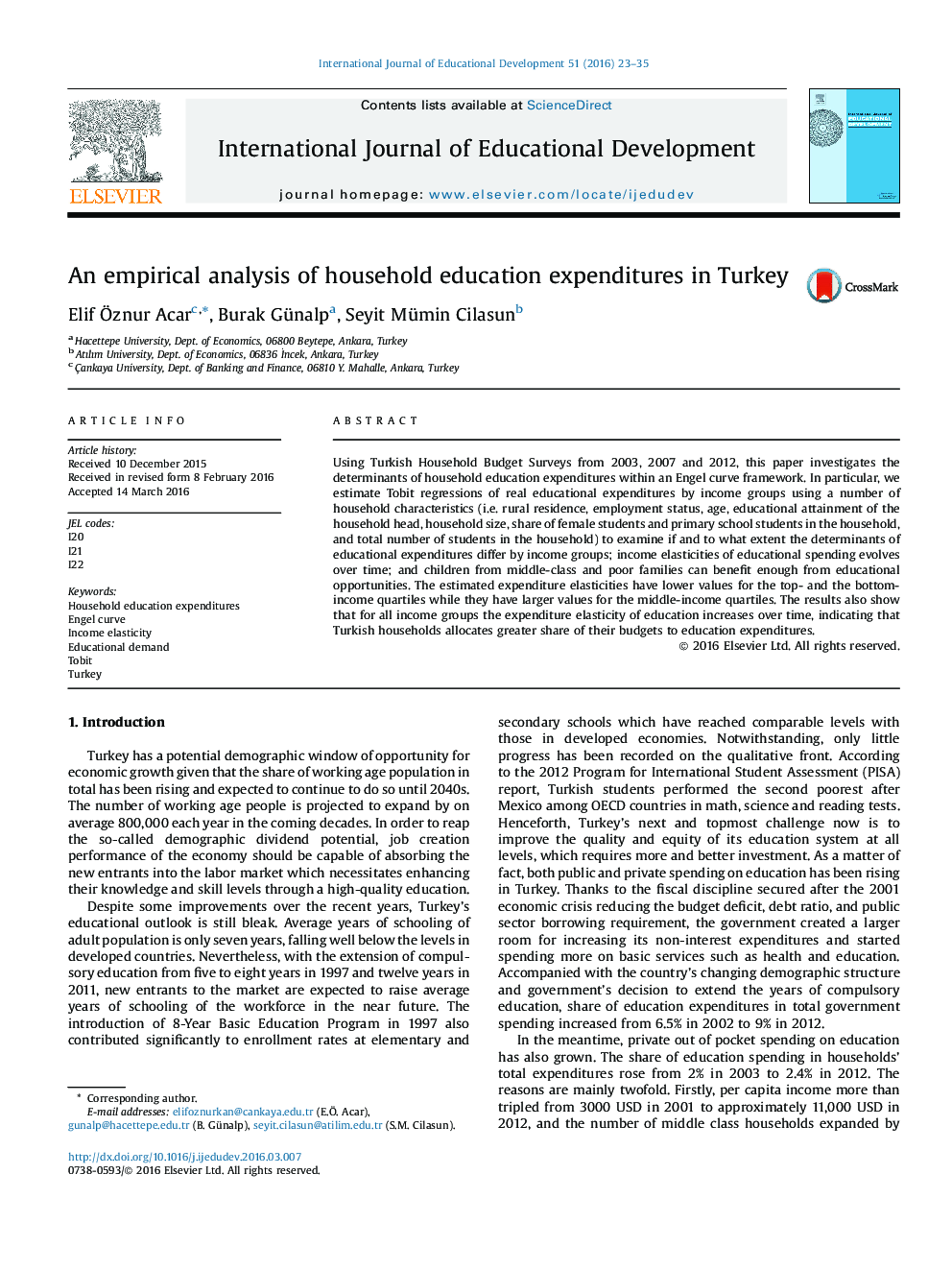| Article ID | Journal | Published Year | Pages | File Type |
|---|---|---|---|---|
| 356000 | International Journal of Educational Development | 2016 | 13 Pages |
•The households in Turkey allocate greater share of their budgets to education expenditures through spending on private schools and private tutoring.•The households in the middle income quartiles consider education a luxury implying that they care about the quality of their children’s education.•On the other hand, education seems to be a necessity item for the Turkish households at the lowest end of the income distribution.•A public policy solely relying on general increases in income to stimulate greater expenditures on education will not work effectively for poor households.•More public resources should be committed to the poor to ensure the equality of educational opportunity.
Using Turkish Household Budget Surveys from 2003, 2007 and 2012, this paper investigates the determinants of household education expenditures within an Engel curve framework. In particular, we estimate Tobit regressions of real educational expenditures by income groups using a number of household characteristics (i.e. rural residence, employment status, age, educational attainment of the household head, household size, share of female students and primary school students in the household, and total number of students in the household) to examine if and to what extent the determinants of educational expenditures differ by income groups; income elasticities of educational spending evolves over time; and children from middle-class and poor families can benefit enough from educational opportunities. The estimated expenditure elasticities have lower values for the top- and the bottom-income quartiles while they have larger values for the middle-income quartiles. The results also show that for all income groups the expenditure elasticity of education increases over time, indicating that Turkish households allocates greater share of their budgets to education expenditures.
